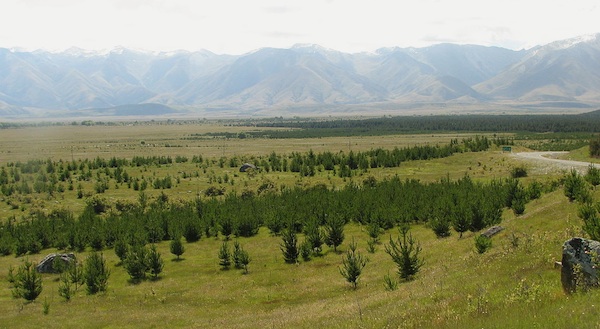B+LNZ has released new research showing New Zealand’s policy of allowing fossil fuel emitters to offset all their GHG emissions by planting trees is at odds with the rest of the world.
This follows recent advice from the Climate Change Commission which B+LNZ says vindicates its calls for limits.
B+LNZ commissioned the International emissions trading schemes and forestry report to explore the relationship between emissions pricing and forestry in other countries.
This is part of its advocacy efforts to persuade the Government to address the issue of wholesale land-use change from sheep and beef farming to exotic forestry driven by carbon offsetting.
B+LNZ insists it is not anti-forestry, and agrees there is a place for some carbon offsetting – many of its farmers have trees on their farms and it supports opportunities for further integration of trees.
“However we have long argued for the Government to change the policy settings that are incentivising whole-farm sales driven by carbon pricing, particularly by placing limits in New Zealand’s ETS on the amount of offsetting fossil fuel emitters can do through the planting of trees,” B+LNZ says.
The research found:
- New Zealand’s policy of allowing fossil fuel emitters to offset all their greenhouse gas (GHG) emissions by planting trees is at odds with the rest of the world, and it’s having a damaging impact on the agricultural sector and rural communities.
- New Zealand is one of only two countries in the world, including Kazakhstan, that allows fossil fuel emitters to offset all their greenhouse gas emissions in their carbon pricing mechanism.
- The European Union and the UK do not allow carbon offsetting in their ETS, while China, South Korea, and US states Washington, North Carolina and California allow for below five percent.
- Meanwhile, Mexico and Taiwan, along with Canadian province Quebec, allow for 10 percent and other areas like Tokyo permit up to 33 percent offsetting.
- Most of these countries also have additional requirements and restrictions with the goal of ensuring any offsets either do not cause harm to other socio economic and environmental outcomes, or go further and require demonstration of co-benefits to the environment.
- New Zealand has no set targets to reduce emissions from fossil fuel use or any limits on how much offsetting can happen through the ETS to meet climate change targets.
- New Zealand’s lack of conditions means carbon emitters can keep avoiding the need to cut back on fossil fuel use and instead offset their pollution by using carbon credits generated on farms through the wholesale planting of pine trees.
The issue of wholesale sheep and beef farmland conversion for carbon farming is a key focus of the ‘Kiwis backing farmers’ campaign from B+LNZ and 50 Shades of Green, which share the view that the integration of trees on farms is a better solution.
Source: B+LNZ












